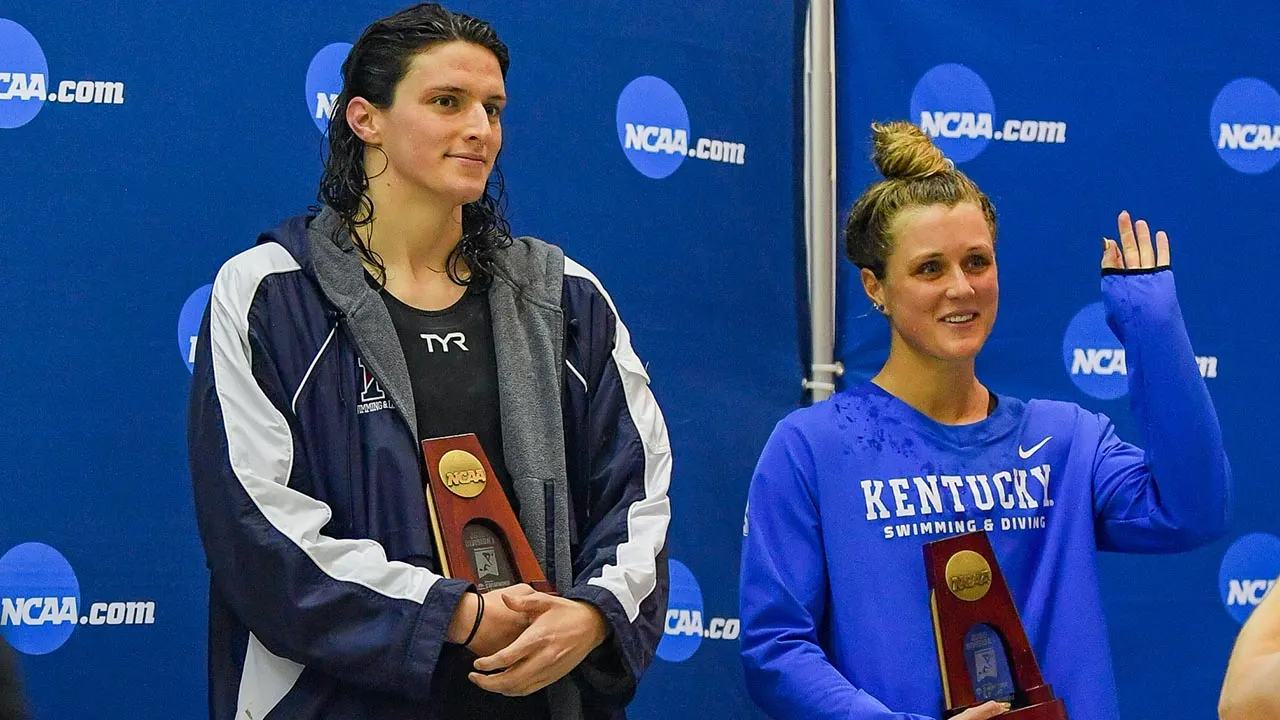Riley Gaines calls on NCAA to void transgender swimmer’s national title

The controversy surrounding former transgender swimmer Lia Thomas and her NCAA title win at the 2022 championships has sparked a debate about fairness and inclusivity in sports. After the University of Pennsylvania decided to erase all program records set by Thomas, questions have emerged about how the NCAA will handle her championship finishes.
Thomas made headlines when she won the 500-yard freestyle event with a time of 4:33.24, as well as finishing in the top 10 in other events, pushing female competitors down the rankings. While UPenn has removed these records from its books, Thomas’ finishes still stand nationally, raising concerns about the integrity of competition in collegiate swimming.
Former University of Kentucky swimmer Riley Gaines, who tied for fifth place with Thomas in the 200-yard freestyle event, is leading a lawsuit against the NCAA for its policies that allowed Thomas to compete. One of the demands in Gaines’ lawsuit is for the NCAA to rescind all of Thomas’ championship finishes, calling into question the organization’s commitment to fair play.
Despite efforts to address the issue, the NCAA has not yet responded to inquiries about potential changes to Thomas’ 2022 championship finishes. Gaines expressed skepticism about the NCAA’s willingness to amend the records voluntarily, criticizing the organization for what she perceives as a lack of moral courage in addressing the issue.
In a recent interview, Gaines highlighted the need for accountability in addressing the controversy surrounding transgender athletes in women’s sports. She emphasized the importance of upholding federal law, including Title IX, to ensure fairness and protect the rights of female athletes.
As the debate continues, Gaines and other advocates are calling for stronger enforcement of regulations to prevent similar incidents from occurring in the future. The issue of transgender participation in women’s sports remains a contentious topic, with implications for the integrity of competition and the rights of female athletes.
In the midst of these discussions, it is crucial for stakeholders to consider the implications of their actions and prioritize the principles of fairness, inclusivity, and respect for all athletes. By addressing these complex issues with integrity and transparency, the sports community can work towards creating a more equitable and supportive environment for all participants.




